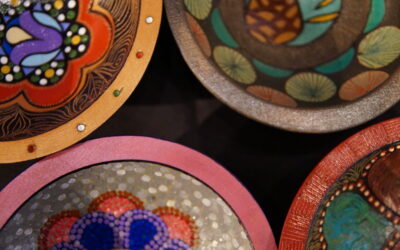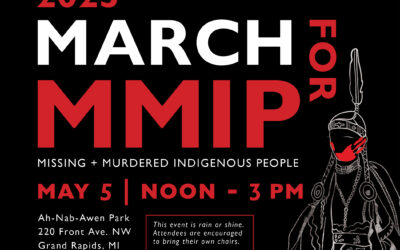Shared from ESPN | Reported and written by ESPN’s Dan Murphy, William Weinbaum and John Mastroberardino
Click here to view the FULL article on ESPN.com
UTICA, Ohio — On a warm Friday night in September in Midwestern farm country, Neil Snelling rests his elbows on top of a chain link fence in his usual spot beside the bleachers lining the home team’s side of his alma mater’s football field.
Snelling has stood behind the students at Utica High School in one form or another since his graduation in 1974 — at different times as an assistant baseball coach, a football team statistician, a school board member, a booster club president, co-founder of the school’s athletic hall of fame and, for the past 18 years, a substitute teacher.
He’s surrounded by the instantly recognizable ingredients of a particular American nostalgia: stadium lights bouncing off a sea of helmets, the beat of a small marching band and the smell of cut grass emanating from the same field where his classmates used to play nearly a half-century earlier. The details of those elements in Utica, however, make it an increasingly rare version of a familiar scene. The light bouncing off helmets highlights the feathered headdress decals framing the home team’s face masks. The band is playing a rendition of Florida State’s “War Chant.” And the text striped across the top of the press box over Snelling’s shoulder welcomes the home crowd to Redskin Stadium.
“Being a Redskin is a big part of my identity,” said Snelling, a 67-year-old who has lived in Utica most of his life.
It’s homecoming weekend, and Utica is hosting Indian Creek — making the game one of the few sporting contests in the country this season to feature two teams that still use the contentious name. The word is defined in dictionaries as a contemptuous term, is deemed offensive by an overwhelming majority of Native American groups, and is among the names found by national organizations of psychologists and sociologists to be harmful. ESPN’s editorial policy is not to use the term, except in rare instances. It is used sparingly and selectively in this piece.
Not a single professional or college team in the United States still has the name. The National Football League’s Washington franchise ditched it in 2020, called itself the Washington Football Team for two seasons and this year adopted “Commanders” as its nickname. Miami University of Ohio changed its nickname to the RedHawks 25 years ago.
But 37 high schools across 18 states still use the word, according to data from the National Congress of American Indians (NCAI), a nonprofit organization representing tribal governments and communities, as well as the websites MascotDB and PeopleNotMascots and reporting by ESPN. “We’ve had millions of Natives brutally murdered across this country,” NCAI president Fawn Sharp told ESPN. “And other people celebrating that, it’s absolutely repulsive. It’s disgusting.”
The number of high schools using the word dropped from nearly 100 in the early 1990s to 63 a decade ago. ESPN reached out to the current 37 schools and most did not respond or declined to comment. Of the 13 schools that did reply, two (Alabama School for the Blind and Canisteo-Greenwood in New York) said they’re having discussions about a possible nickname change. A third, which is on tribal land in Wellpinit, Washington, told ESPN on Oct. 25 a decision was made this year to stop using the nickname, but it would not provide additional information. The nickname still appears on Wellpinit High’s website.
Three high schools with the nickname besides Wellpinit are on tribal lands. Rush Springs in Oklahoma did not respond to ESPN’s emails and calls. The other two — Red Mesa in Arizona and Kingston in Oklahoma — said the tribal nations upon whose lands the schools operate support the nickname. “We know this is an incremental process,” said NCAI executive director Larry Wright Jr. “When using the ‘R-word,’ we think that has a different connotation than other words used by tribal nations, but out of respect for tribal sovereignty, we defer to those nations.”
Navajo Nation President Jonathan Nez told ESPN he would not address the nickname at Red Mesa, which is on Navajo territory — he said the matter is up to the school and its community. But Nez also noted that the Nation is on record as opposing disparaging references by professional teams to Native Americans.
Two other high schools that are not included among the 37 started planning a change. Morris in Illinois set a 2025 date to implement a new nickname, while Sandusky in Michigan is exploring possibilities for its new nickname and for funding.
Nine of the 37 high schools that still use the nickname are in Ohio, more than double the number in any other state. In the 2020 Census, 0.26% of Ohioans identified themselves as American Indian/Alaska Native alone. Pennsylvania, New Hampshire and West Virginia were the only states with a lower percentage. Two high schools in Pennsylvania (Neshaminy and Sayre), one in West Virginia (Hurricane) and none in New Hampshire currently use the name.
John Low, a citizen of the Pokagon Band of Potawatomi and a history professor at the Ohio State University branch in Newark — about 13 miles from Utica — said the combination of a small Native population and prominence of offensive nicknames is no coincidence.
“There aren’t any Indians in Utica as far as I know,” Low said. “There is no one there to challenge it.”
Low teaches a course on American Indian history, which has included a lecture each semester on the use of racist or offensive terminology in sports. He said sports mascots propagate a misleading image of his ancestors as one-dimensional, bloodthirsty warriors. That cartoonish depiction, Low said, is starkly contrasted by the massive and mathematically precise earth mounds that remain intact today just 20 minutes south of where Indian Creek and Utica played their game. Hopewell era tribes built the mounds more than 2,000 years ago to mark sacred ground, track lunar cycles and serve as a meeting place for a variety of gatherings. Low said preserving those areas is a far better way to honor his ancestors than by naming a sports team with an offensive term.
The word appears in historical records dating back to the mid-1700s and for more than a century pertained to bounties on indigenous people. Jamie Stuck, chairperson of Michigan’s Native American Heritage Fund, said his tribe’s forebears were forced out of the state in the wake of President Andrew Jackson’s 1830 Indian Removal Act and that published rewards of $55 a head incentivized for uprooting tribespeople. Some escaped capture and returned, but many Native Americans who resisted forced resettlement were killed.
“That mascot name has a lot of historic trauma for our people,” Stuck said. “Their lives were taken by the hands of army soldiers, and ways that they would prove that there was another dead ancestor was by their skins, hence the name.”



0 Comments